Room to Read
The NGO scaling solutions for literacy and gender equality
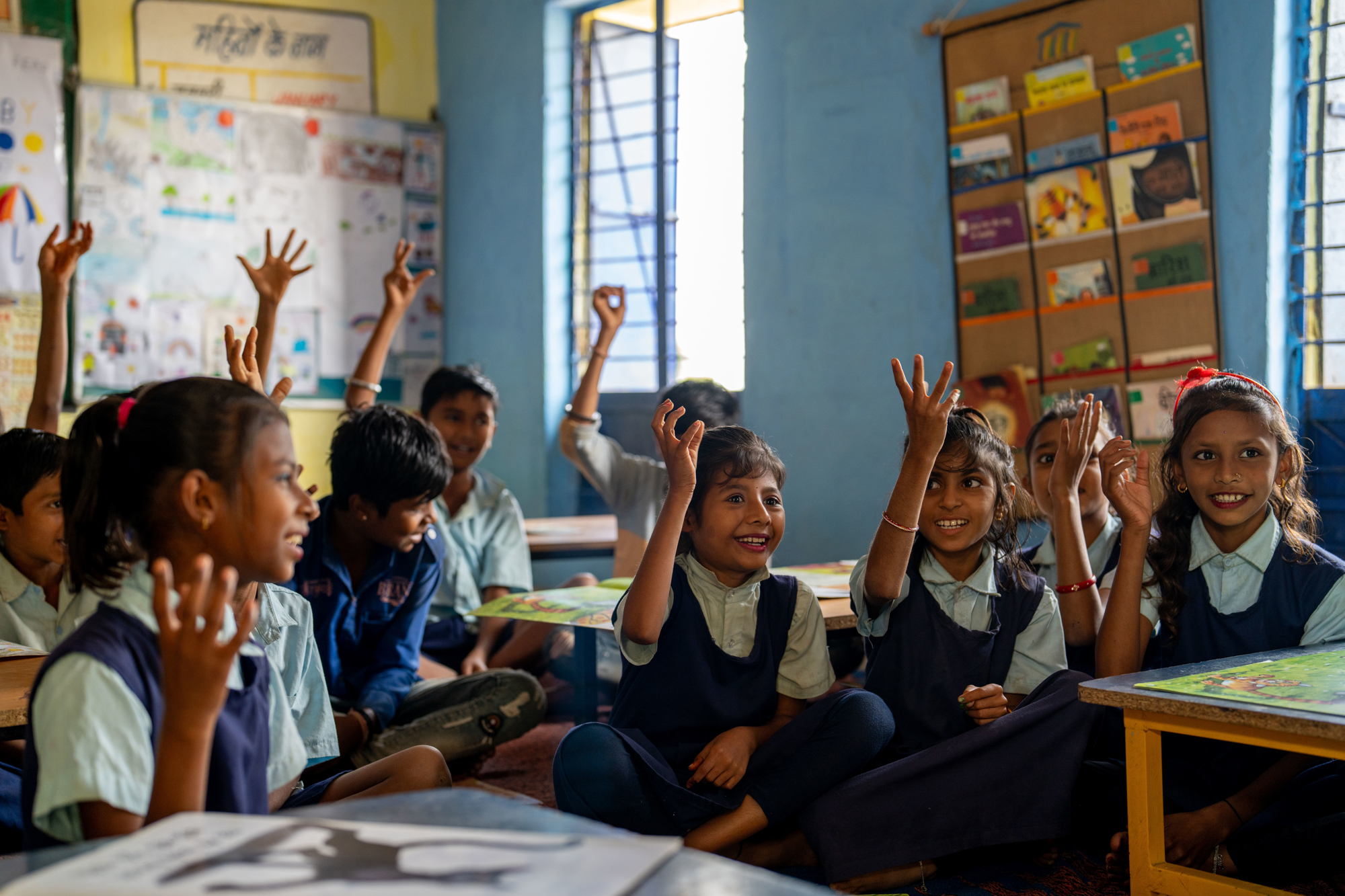
The NGO scaling solutions for literacy and gender equality

Room to Read is a global nonprofit developing foundational learning skills in children who face deep educational, gender and economic inequities, supporting them in unlocking their full potential through education.
By the end of 2025, it will have deployed more than US$1 billion into improving foundational learning for more than 50 million children across 28 different countries, helping them break the cycle of illiteracy and gender inequality and become changemakers for their families and communities.
Room to Read has been operating in the MENA region for almost a decade, with established programming in Palestine, Lebanon, and Jordan, supporting children, libraries, government school, refugee camps, and other learning centres.
It supports local authors to create work in a variety of languages to give children culturally relevant and accessible books, to foster both a love of reading as well as emotional support tools for disenfranchised or conflict-affected groups.
Room to Read’s strength is in working with governments and communities to implement solutions that work. Of the NGO’s 1,200 staff, nearly 90 percent are situated in the communities they serve, fundraising is bolstered by local boards and volunteer chapters provide additional support to the organisation.
The NGO was founded in 2000 and has been led by Dr. Geetha Murali, CEO since 2018.
Education is a basic human right, yet quality education remains out of reach for millions of children around the world. Approximately 251 million of the world’s children and youth are not in school, and 70 percent of 10-year-olds living in low and middle-income countries are in “learning poverty” unable to read and understand a simple text.
At this moment, the world is experiencing a severe global learning crisis, putting youth from historically under-resourced communities acutely at risk. Without action, the current generation of students now risks losing US$21 trillion in lifetime earnings in present value, or the equivalent of nearly one-fifth of today’s global Gross Domestic Product (GDP).
The problem is particularly acute in the Middle East. In Palestine, there are more than a million children out of school due to the conflict in Gaza and hundreds of thousands of Lebanese and Syrian children are also missing out due to violence, displacement, and economic hardship.
Room to Read believes education is the most effective tool for solving the world’s greatest challenges — gender inequality, climate change, poverty, war and conflict, and poor health.
“We are helping children break the cycle of illiteracy and gender inequality, helping them become problem solvers and changemakers in their own families and communities,” explains CEO Dr. Geetha Murali. “I always tell people, if you really want to solve the world's greatest challenges, what better way can there possibly be than creating millions and millions of changemakers that will solve the problems facing them directly?”
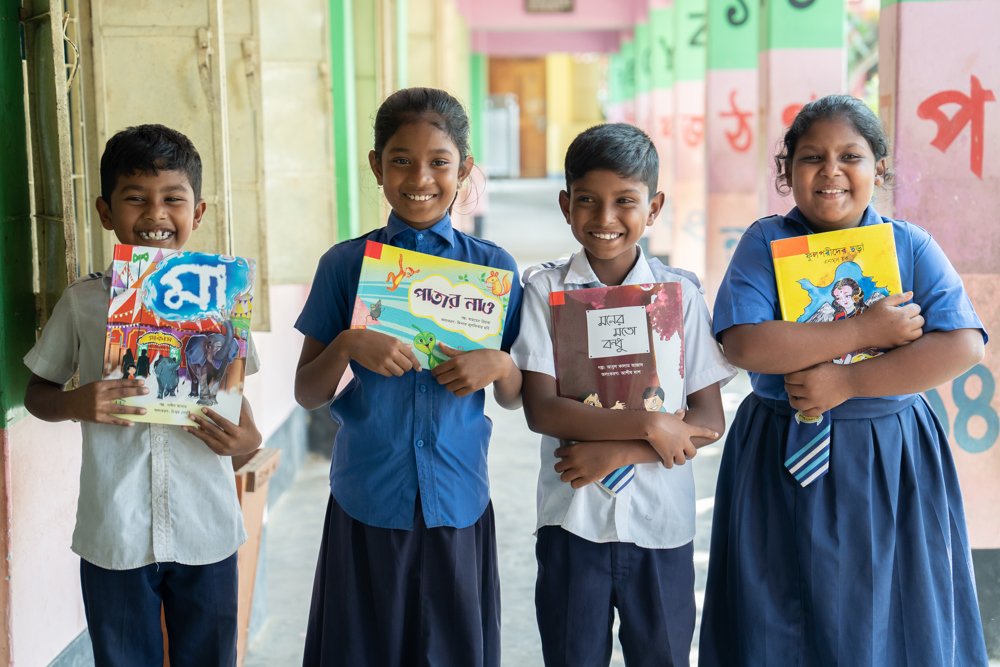
On a trekking holiday in the Himalayas in the late 1990s, Microsoft executive John Wood stopped at a tea stall on the mountainside mid-hike and got talking to a Nepali man, who was sitting at the next table. Pasuphati explained he was from the local education department visiting mountain schools, which were badly under-served, and he invited Wood to come and see for himself.
Nothing had prepared the American for the precarious state of the cramped mud-floor classroom he visited. He was even more shocked by the library, with a single, small corner cupboard containing some dusty adult paperbacks in English and Italian left by tourists.
When Wood left, the headteacher asked if he might return one day with some books, and that is exactly what he did. As soon as he returned to his office job in Hong Kong, Wood began writing to everyone he knew asking them to send spare children’s books. Within months, he was back in Nepal with thousands of books, loaded onto donkeys and yaks and taken up mountainside to the school.
Seeing the reaction of the children as they received colourful, age-appropriate books, Wood resolved to keep going and aged 35, he quit his corporate job and told anyone who would listen about the need for help.
After that first visit to Nepal in 2000, Wood set up Room to Read alongside Dinesh Shrestha, from Nepal, and US-based Erin Ganju, a nonprofit global organisation to work towards a world free from illiteracy and gender inequality.
Today, Room to Read is an award-winning NGO led by CEO Dr. Geetha Murali that is celebrating its 25th anniversary year.
By the end of 2025, it will have invested US$1 billion in foundational learning skills to more than 50 million children across 28 countries - including Bangladesh, Cambodia, Canada, China, Grenada, Honduras, India, Indonesia, Italy, Jordan, Kenya, Laos, Lebanon, Malawi, Maldives, Myanmar, Nepal, Pakistan, Palestine, the Philippines, Rwanda, South Africa, Sri Lanka, Tanzania, Uganda, United States, Vietnam, and Zambia.
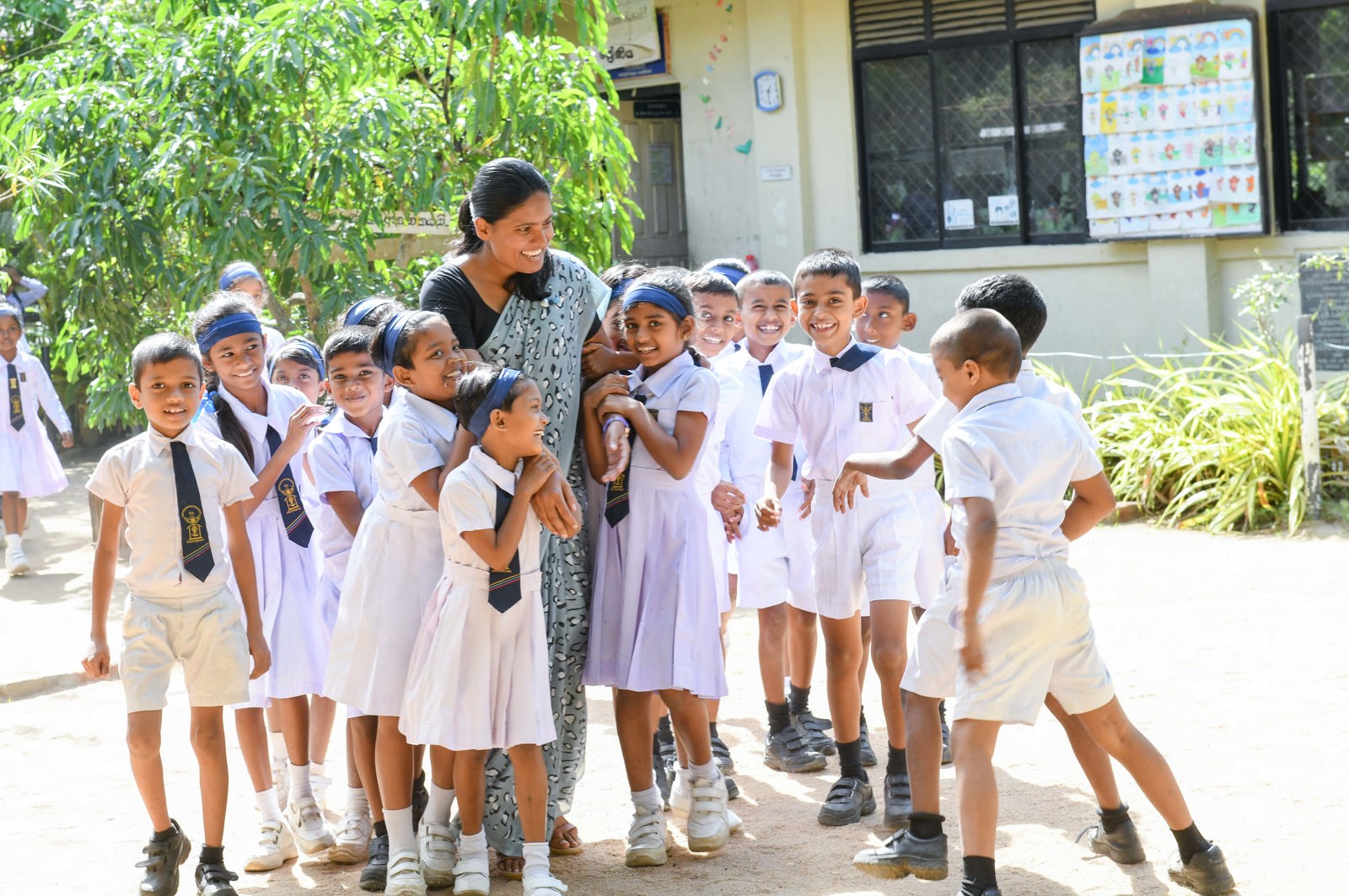
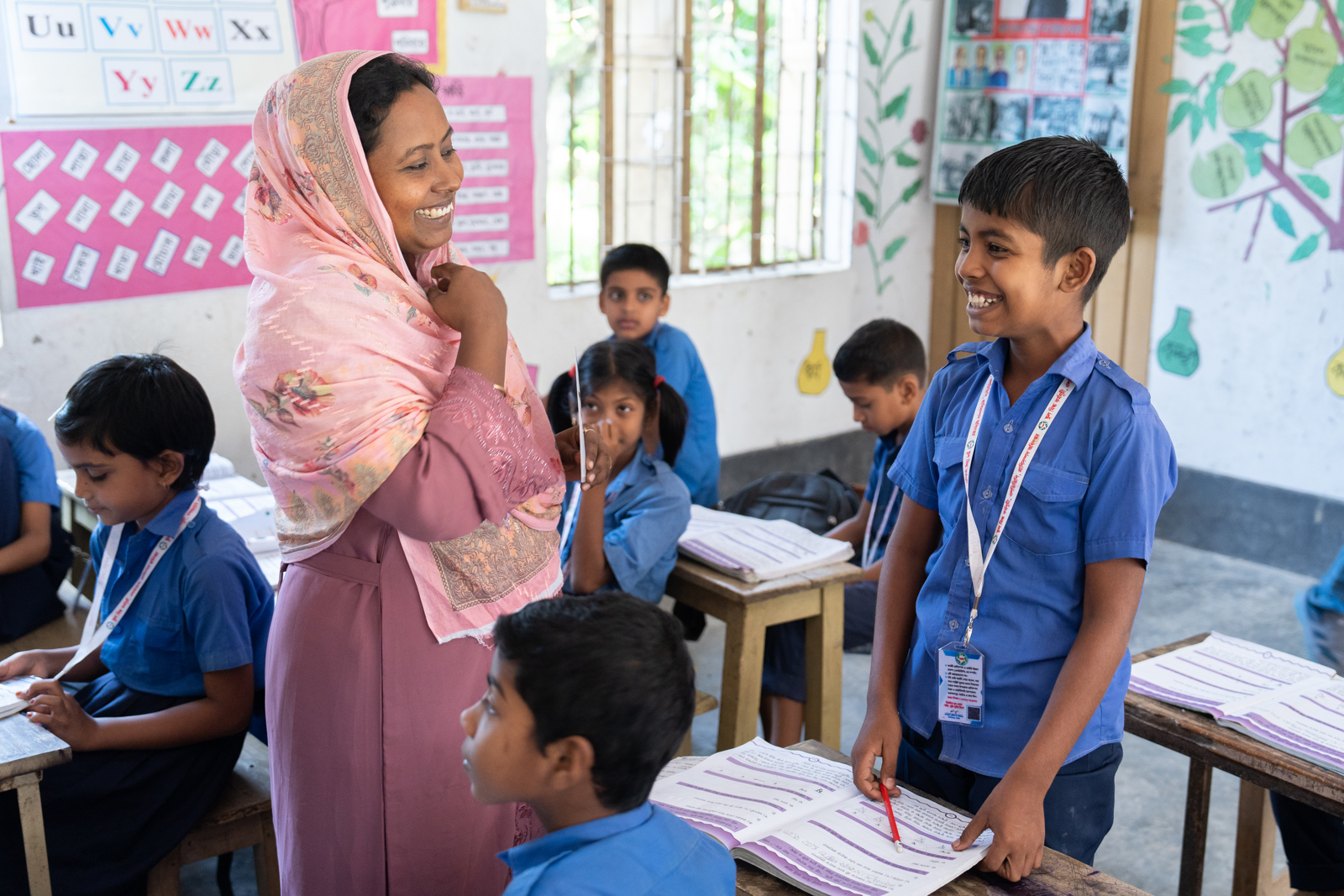
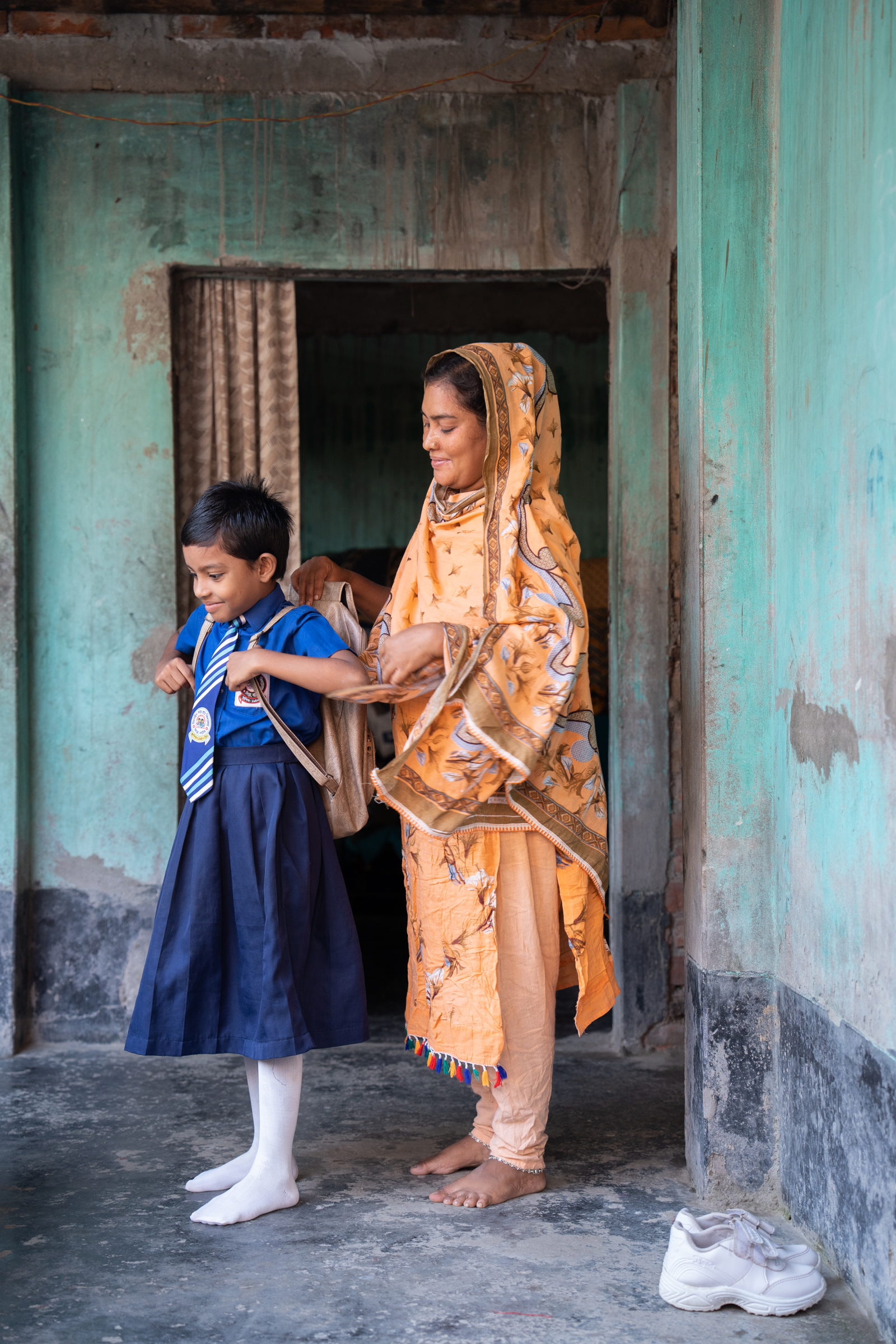
Room to Read nurtures foundational learning skills in children through two key pillars: literacy and gender equality.
The Literacy Portfolio supports children as they develop literacy skills with a love of learning.
Room to Read trains and coaches cohorts of teachers, creates quality books and curricular materials and establishes libraries filled with diverse children’s books in local languages that can be enjoyed at school or home. Room to Read acts as both a nonprofit publisher and as an active supporter of existing local for-profit publishers.
The Gender Equality Portfolio, meanwhile, supports adolescents, particularly girls, in developing life skills that promote gender equality.
Within this pillar, Room to Read helps girls as they develop their power as positive change agents by providing critical knowledge, life skills classes, mentorship, peer materials support, and family and community engagement. The curriculum focuses on helping girls develop five key life skills - collaboration, resilience, leadership, decision making, and critical thinking – through which they learn to self-advocate and chart a successful life path that they choose for themselves.
Room to Read’s gender programming also supports boys with life skills.
Why girl’s education?
Girls’ education boosts public health exponentially. If all mothers completed primary education, maternal deaths would reduce by two-thirds, saving 98,000 lives. In the same scenario, 1.7 million children would be saved from stunting and malnutrition.
Girls’ education is the best investment a country can make to grow its economy. Countries lose more than $1 billion a year by failing to educate girls to the same level as boys.
The longer a girl stays in school, the more likely she is to live a healthier life, marry later, earn more income, re-invest in her community and ensure her own children gain an education.
Girls’ education bolsters countries’ abilities to mitigate the effects of climate change. Data suggest a strong positive association between the average amount of schooling a girl receives and her country and community’s ability to plan for, cope with, and rebound from climate crises.
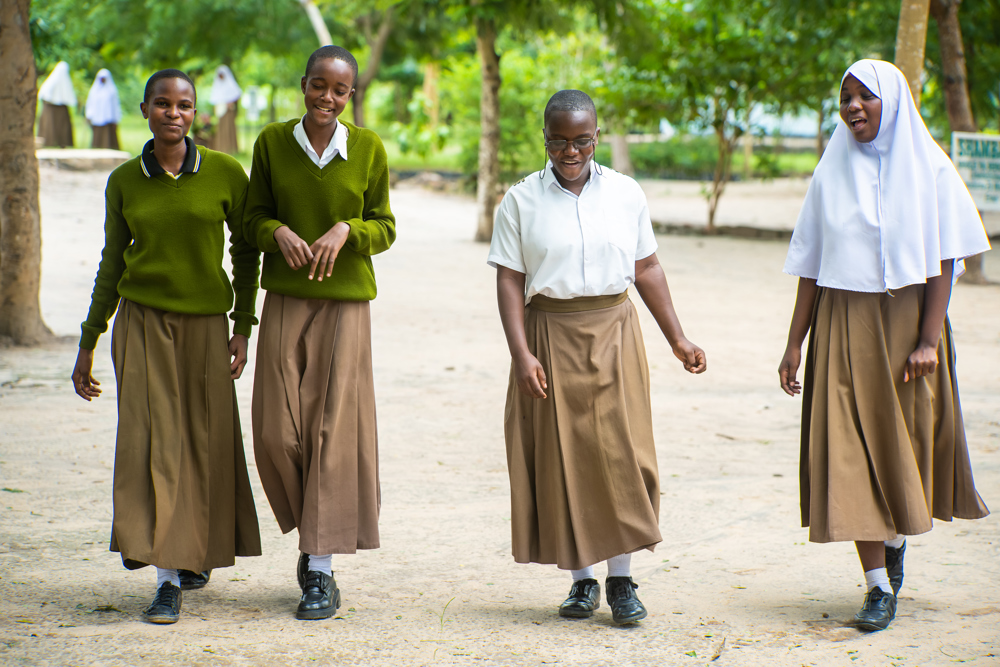
In Tanzania, Room to Read is supporting the Tanzania Institute of Education in reviewing and revising government curriculum and textbooks for early literacy.
Eschewing the traditional international development model of parachuting in global expertise, Room to Read works with individual communities to understand what they need and then creates and builds locally, working directly with expert local partners who are the experts in curriculum and content; educator training and coaching; delivery structures; and research.
Language is a key part of this. Instead of tatty second-hand books left behind by well-meaning tourists, Room to Read works with local authors and publishing houses to create fresh, relevant content in local languages.
“We make sure that children have access to resources in their local languages that resonate with them and help develop their skills and inspire them based on content that is relevant to their lives,” explains CEO Murali.
To accelerate learning outcomes, Room to Read also collaborates with government education systems and non-formal learning systems, as well as multimedia and evidence management systems. Partnering at a systems level means there is greater scope to deliver change at scale and have lasting impact.
Room to Read is one of the few international NGOs regularly invited by governments to join their advisory committees in informing nationwide curriculum development, gender-aware approaches and programs, and school library standards.
In Tanzania, for example, Room to Read is supporting the Tanzania Institute of Education in reviewing and revising government curriculum and textbooks for early literacy. In South Africa meanwhile, they have collaborated with other NGOs to create leveled readers in nine African languages, available nationally, while providing technical support for distribution and teacher training.
And, in Cambodia, Room to Read piloted a gender-transformative life skills curriculum for boys to help them examine and challenge the harmful gender norms and stereotypes that shape their lives and the lives of women and girls in their families and communities. These curriculum and training guidelines were formally adopted by the Ministry of Education, Youth and Sport to be integrated in national curriculum for grades seven to nine.
During 2023, Room to Read trained more than 4,800 government officials in literacy-related topics and over 150 government officials in gender and girls’ education-related topics, focused on building skills that could be applied in their work to support a productive education system.

Dr. Geetha Murali joined Room to Read as CEO in 2018 and has been a driving force in the growth of the organization and its focus on accelerating learning outcomes at scale. Under her leadership, the organization reached 4x impact in the last five years alone.
Murali has her own compelling personal history as the daughter of a potential child bride. “My family history was littered with obstacles and child marriage was incredibly common in my family,” she explains to an audience at Room to Read’s 2024 Dubai Gala Dinner.
“My grandmothers were married at the ages of two and 14, but when my mother was pressured to get married at the age of 13, she refused. She was the eldest of seven mostly girls and that refusal changed the trajectory of her life and therefore mine. It's because of that decision that I stand in front of you today with PHD and the title of CEO next to my name.”
Murali’s work has been recognised by former first lady of the United States Michelle Obama, with both the first lady’s girls’ education initiatives, Let Girls Learn and Girls Opportunity Alliance, promoting Room to Read’s gender equality program as a role model for the sector.
Murali’s efforts to scale literacy instruction, school library and private book publishing programs have also resulted in the Bill and Melinda Gates Foundation naming Room to Read as a Goalkeepers Accelerator in education.
“That transformation from potential Child bride to CEO, that took just a single generation. I am an example of the ripple effects that we hear about. And it's why I've dedicated my life to this mission,” she says.
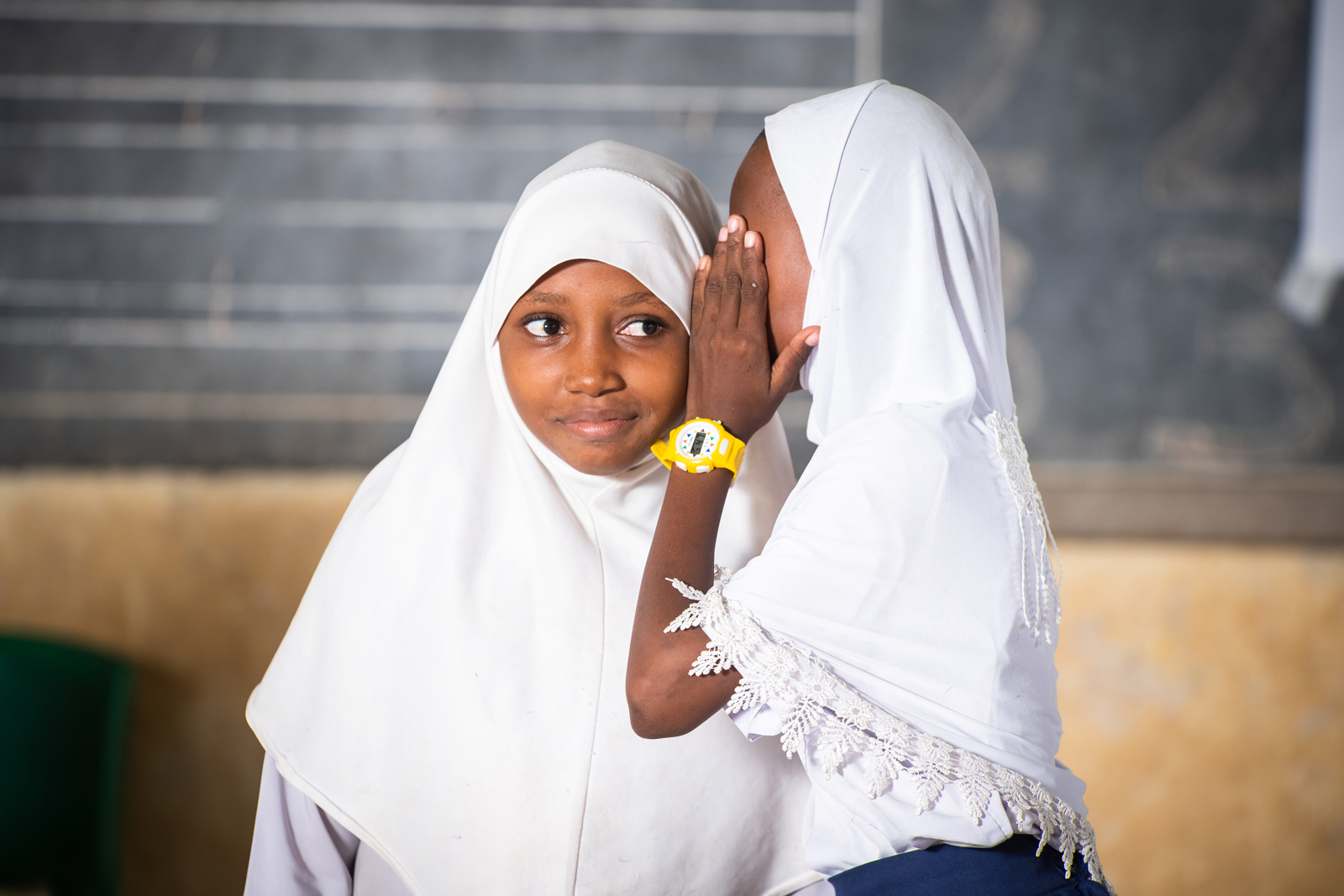
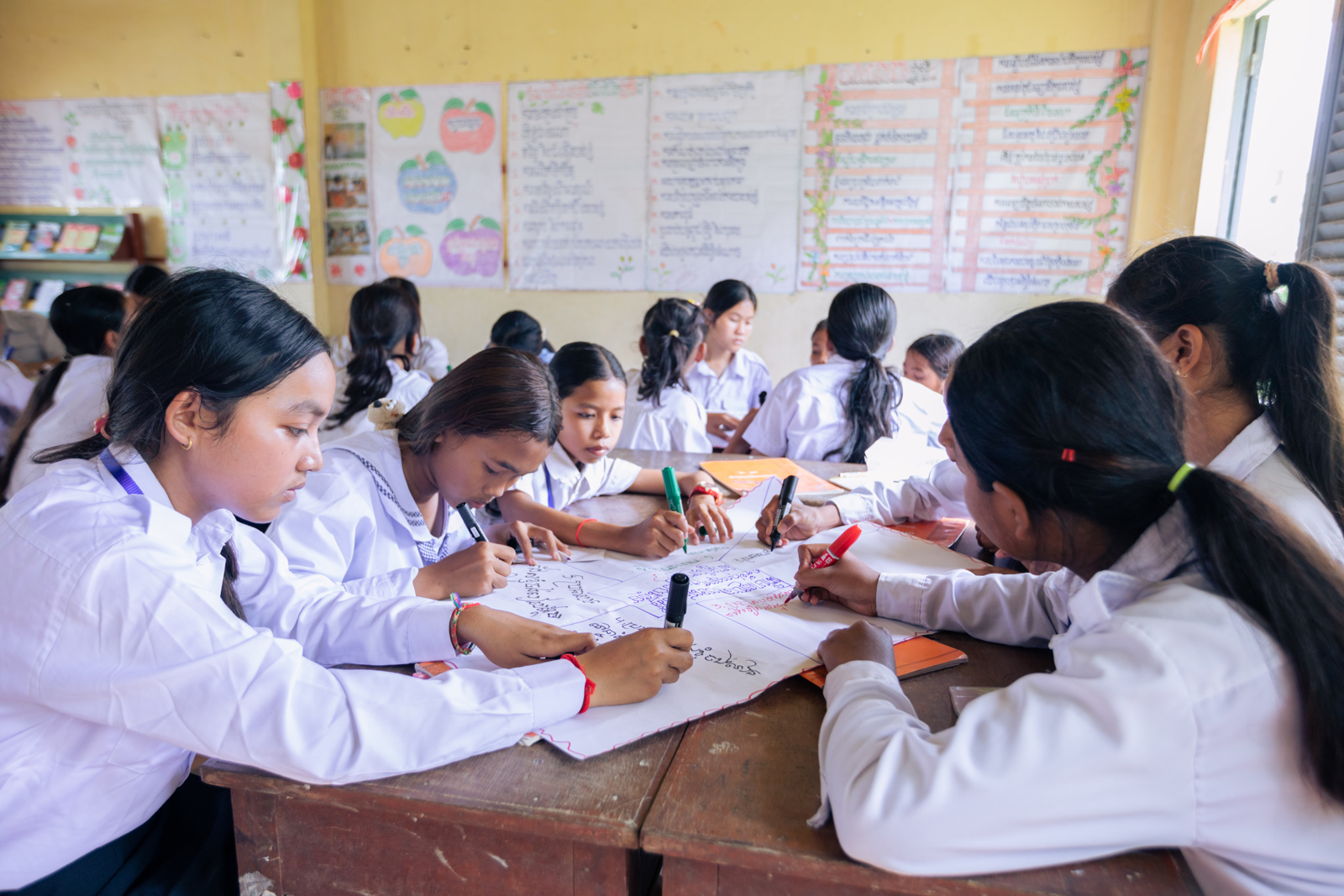
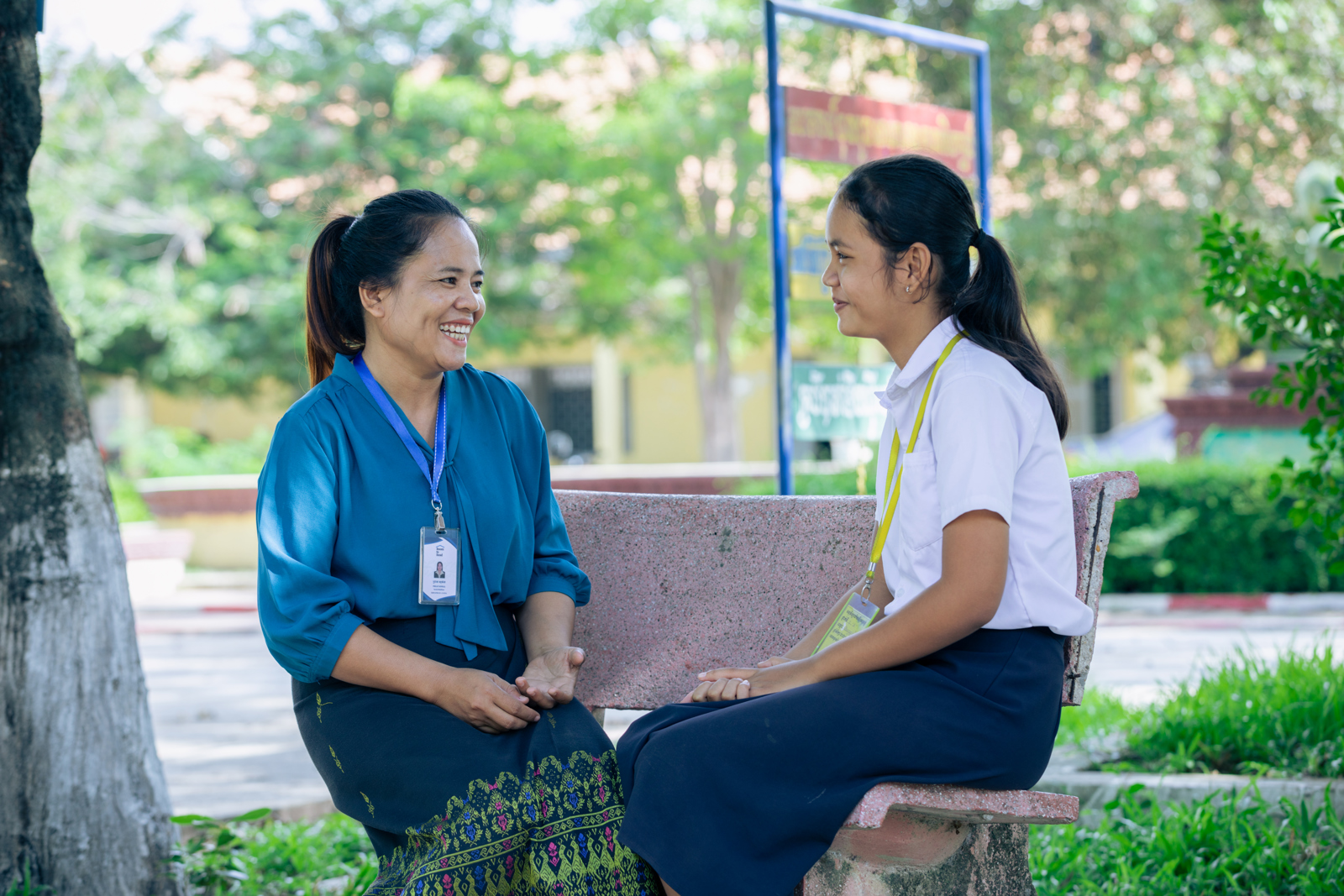
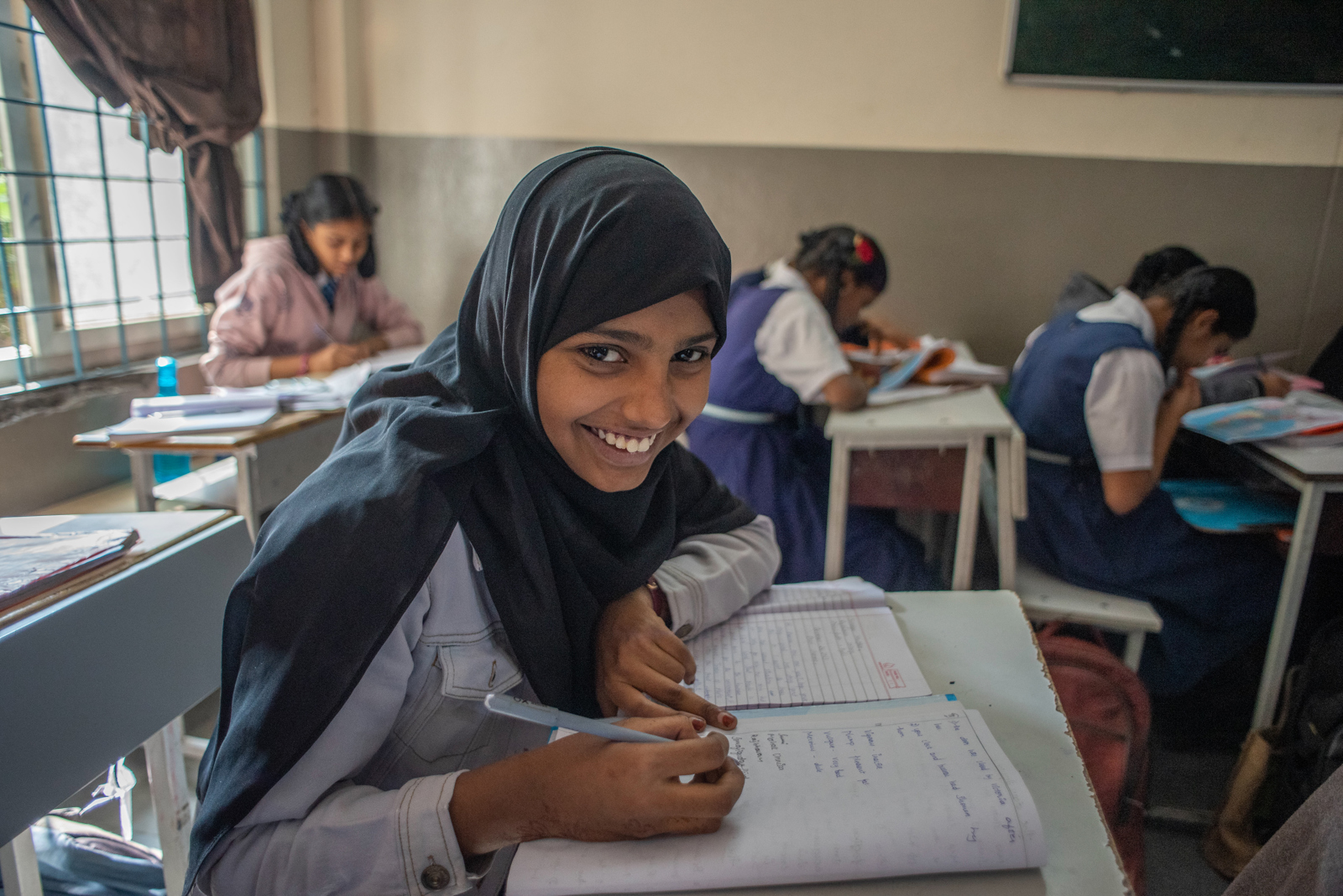
To date, Room to Read has benefited more than 50 million children of all genders in historically low-income communities and in areas where education inequities exist and has worked in 28 countries, including Bangladesh, Cambodia, Canada, China, Grenada, Honduras, India, Indonesia, Italy, Jordan, Kenya, Laos, Lebanon, Malawi, Maldives, Myanmar, Nepal, Pakistan, Palestine, Philippines, Rwanda, South Africa, Sri Lanka, Tanzania, Uganda, United States, Vietnam, and Zambia .
Its Literacy Program contributes to greater reading fluency and comprehension. Children in its programmes read, on average, more than twice as many correct words per minute as children in comparison to schools and answer twice as many comprehension questions correctly.
As of the end of 2023, Room to Read has developed book titles in 57 languages, published more than 4,600 original and adapted children’s titles, and distributed more than 42 million books.
Additionally, Literacy Cloud, Room to Read’s online digital library, hosts more than 3,000 children’s book titles in 41 languages, providing children and teachers access to a rich diversity of books, read-aloud videos, and instructional resources.
In 2023, more than 96 percent of Girls’ Education Program participants who remained enrolled in school advanced to the next grade. And in a survey conducted in that year, among 5-year alumnae globally, 79 percent had either been enrolled in tertiary education and/or employed.
Room to Read has operated its gender equality programming in 10 countries (Bangladesh, Cambodia, India, Italy, Laos, Nepal, Sri Lanka, Tanzania, Vietnam, and Zambia) where it has supported more than 3.7 million girls, changing gender paradigms in communities and strengthening support for girls’ education, the results of which will carry forward for generations.
By the end of 2027, the NGO aims to double the number of children they serve each year, the number of communities they support each year and the number of partners they work with.
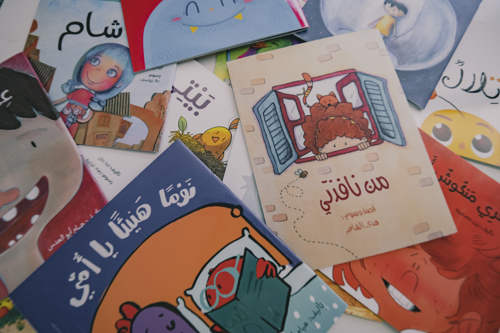
Room to Read started supporting children in the Middle East in 2017, and to-date has provided nearly 1.2 million children across Lebanon, Palestine, and Jordan with the resources they need to continue learning, no matter the circumstance.
With the recent escalation of conflict in the Middle East, Room to Read’s work in the region is growing at a rapid pace in response to urgent needs.
“Right now, more than one million children are out of school in Palestine and half a million children are out of school in Lebanon,” notes CEO Geetha Murali. “These are not just large numbers. Underneath them is a child whose dreams are limited or worse, children who don't even know what dreams they're allowed to imagine.”
She adds: “These numbers demonstrate limited potential, the loss of potentially an entire generation if we don't do our part and take urgent action to alleviate hardship.”
In Palestine, Room to Read is working with ANERA to distribute educational relief packs (which include books, coloring pencils, and sketch books) to children in Gaza.
In 2025, Room to Read is looking to develop a new collection of 10 Arabic children’s titles, created by Palestinian authors and illustrators. In addition to supporting local writers, these books will offer vital social and literacy support to Gazan children who after enduring 14 months of brutal war now face the uncertainty of returning to destroyed homes.
In Lebanon, Room to Read’s Reaching All Children project began in 2022 with the aim of fostering a habit of reading and literacy among primary school-age children through the distribution of children’s books and the development of libraries in non-formal education centres.
To date, the project has established 15 libraries and distributed 60 titles and 90,000 children’s books in Modern Standard Arabic across Lebanon.
During the conflict in 2024, Room to Read worked with its local partner LOST to distribute 25,000 hot meals to displaced Lebanese families as well as 10,000 emergency sets consisting of books, sketchbooks, colored pencils and more to displaced children sheltering in schools and camps.
Additionally, teachers and volunteers received specific training in social-emotional learning techniques to use alongside these kits, and have been guiding reading sessions for children to get both literacy support and emotional care.
Room to Read continued to support the country’s libraries and reading corners throughout the crisis and is working to develop more into 2025. Functioning as both a sanctuary and a learning space, these libraries offer not just books but a sense of belonging and continuity amidst crises.
"Room to Read is working alongside an incredibly engaged community in Lebanon, whose members—through dedication and volunteerism—bring vibrant life to our centers, books, and libraries,” explains Dina Elabd, project manager for Room to Read in the Middle East
“Our commitment to fostering literacy and education is made stronger through close collaboration with the Ministry of Education and Higher Education, a relationship we deeply value and hope to expand in the years ahead,” she says.
“As we face the challenges of a region marked by conflict, we are more resolved than ever to provide safe and supportive learning spaces for children."
In Jordan, meanwhile, Room to Read has a longstanding partnership with the Queen Rania Foundation. Its latest project is READ, which is implementing 43 public school libraries to cultivate a culture of reading in Jordanian public schools.
This initiative includes: the distribution of books to schools including 640 titles approved by the Ministry of Education; training for coaches and librarians; organising coaches and librarians visits as well as workshop with teachers in schools.
“Education by its very nature provides seeds of hope, even in the harshest of landscapes,” says CEO Murali. “Books may not fully shield children from the harsh realities of conflict, but they can offer a doorway to dreams, a path to continued learning and a reminder of boundless potential. We will do all we can to ensure a generation of young learners are not left behind.”
The Covid-19 pandemic was a challenging time for all learners but especially girls in lower-income households, who were at greater risk than their male siblings of dropping out of school and / or being forced into child marriage or low-earning jobs, due to the additional pressures created by family financial hardships.
To help combat this, Room to Read developed new multimedia approaches to its gender equality programming, supporting girls with remote mentoring, delivering life skills lessons through radio, telephone, videos, and worksheets - and increasing parent engagement and monitoring of risk factors for not returning to school.
The interventions worked and on average, in countries where schools reopened by the end of 2020, 95 percent of the girls in Room to Read’s Girls’ Education Program had returned to classrooms.
Room to Read has continued to develop the delivery of life skills for young girls through its recently-launched She Creates Change campaign.
A multi-media storytelling initiative, which includes an award-winning animated and live-action film, illustrated books and compelling audio stories, She Creates Change boldly aims to reach all 432 million adolescent girls (ages 12-18) in the world with content and educational curriculum.
Exploring subjects like financial literacy, discrimination, climate justice, menstruation, and harassment, She Creates Change is based on the lives of six remarkable young women from low-income communities in Bangladesh, India, Nepal, Sri Lanka, Tanzania and Vietnam, who discover their power through Room to Read's gender equality programming.
The film tells the stories of Dewmini, Diksha, Keya, Naifat, Trang and Yashika, profiling how each girl confronts challenges unique to her life, like harassment, food scarcity or early marriage, by advocating for herself and her future.
Room to Read has a globally distributed headquarters with leadership across several global offices and receives funding from a variety of individual, philanthropic, corporate, and government donors.
In 2023, the organisation’s leading funders included: Atlassian, Cartier Philanthropy, Humanitix, Goldman Sachs Gives, IMC, The Patrick J McGovern Foundation, Tatcha, and World Food Programme (WFP).
In the MENA region, Dubai Cares has been partnering with Room to Read for more than a decade, supporting children and projects in Bangladesh, Cambodia, Laos, Nepal, South Africa, Sri Lanka and Zambia. Dubai Cares has been a key supporter of Room to Read’s work with Syrian refugees in Jordan, where a collaboration on a nationwide school library model with the Queen Rania Foundation.
FIVE Holdings, a UAE-based real estate and hospitality group, has also been a key funder for the NGO, contributing to programmes across India related to literacy and girls’ education, in partnership with local governments.
Room to Read operates nine regional boards which support with localized fundraising and in-kind support and expertise. In the Middle East, the board members are Malick Badjie and Nadia Logab, Yusuf Alireza (Chair) and Dina Khreino, Adel Al Falasi, Mahdi Amjad and Shaima Amjad, Yogesh and Hinal Kale, Ahmed El-Maghraby and Malak Alireza.
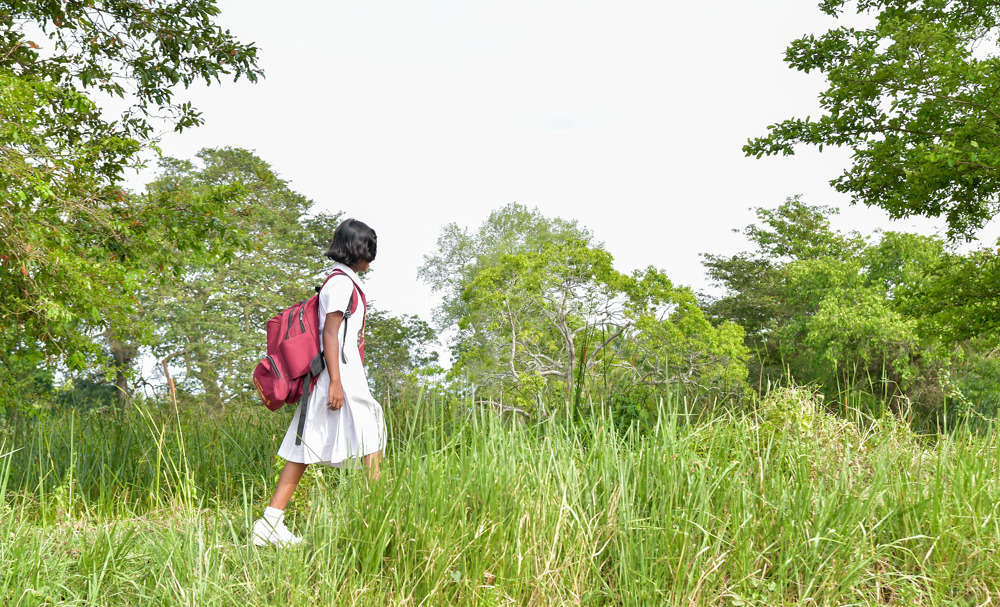
Room to Read has been celebrated by world leaders and organisations such as UNESCO, the Library of Congress, and international education leaders, like HundrED, whose independent jury of 194 experts gave them the top rank for impact and scalability, out of a pool of 3,500 organisations.
Its locally-produced children’s books have won several prestigious awards, including the 2024 Ezra Jack Keats Award for "Dancing Hands" in the US and the 2022 IBBY Honour List Best Children’s Book for "Joch Joch, the Best Photographer" in Cambodia.
In 2024, Room to Read was also honored with a royal decree from Cambodia (the Knights Grand Cross) which honors exemplary service in the fields of education, arts, science, literacy, or social work. In addition, with a 17-time four-star Charity Navigator rating, the NGO has earned global trust for its financial transparency and effectiveness.
It's a good idea to use a strong password that you're not using elsewhere.
Remember password? Login here
Our content is free but you need to subscribe to unlock full access to our site.
Already subscribed? Login here